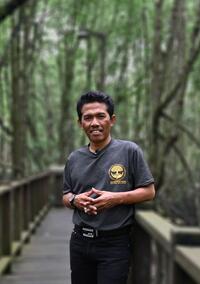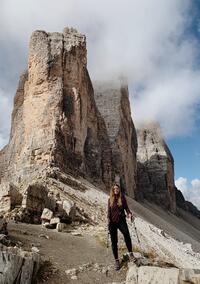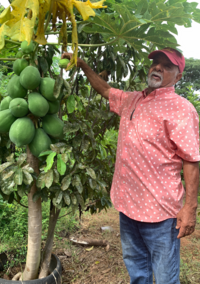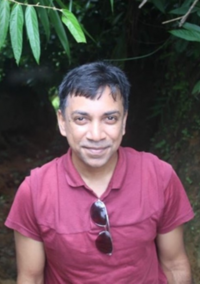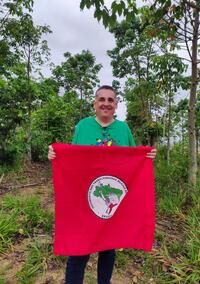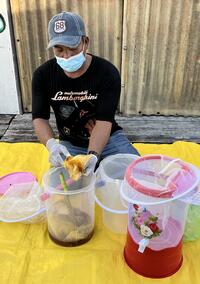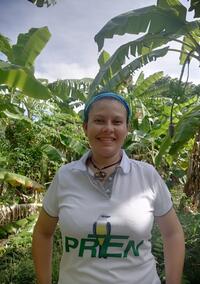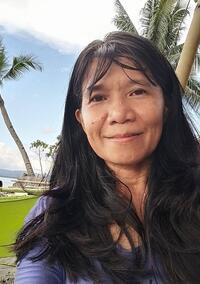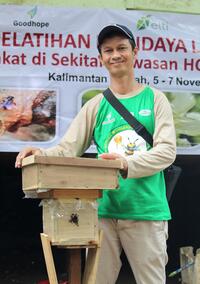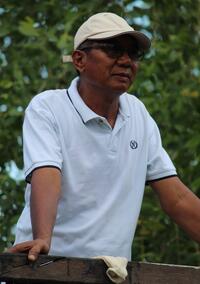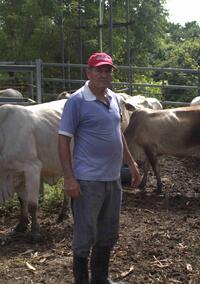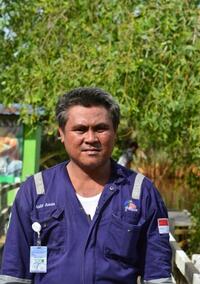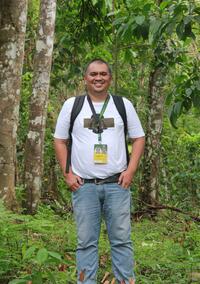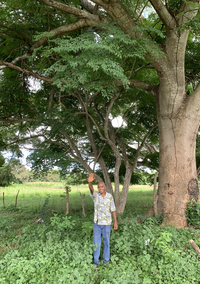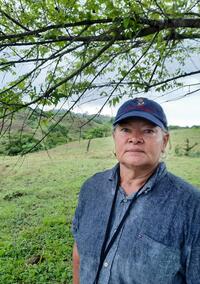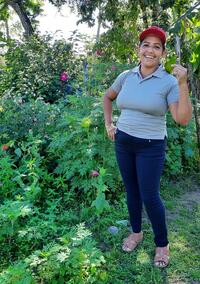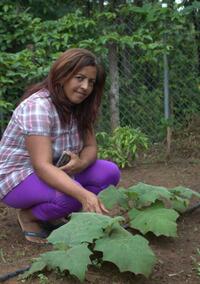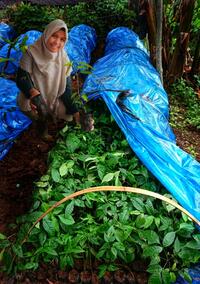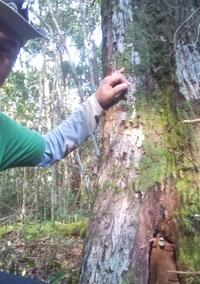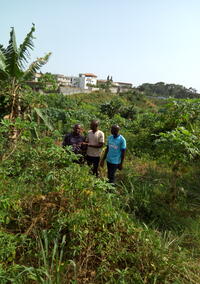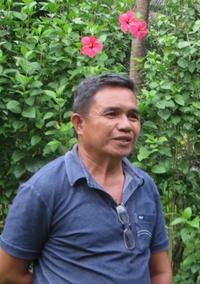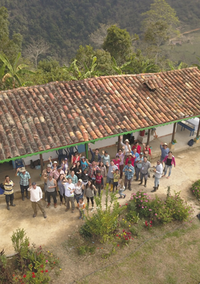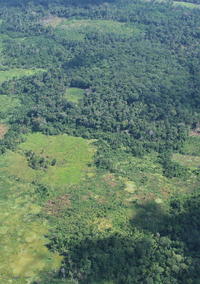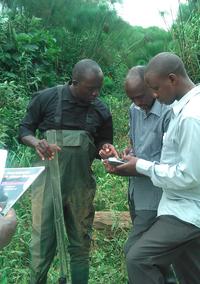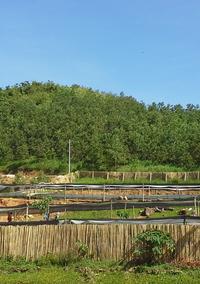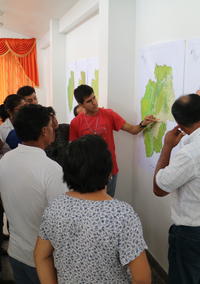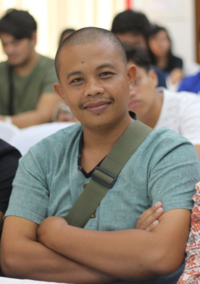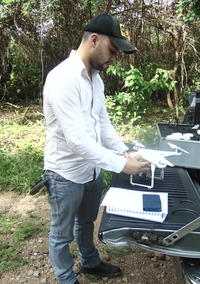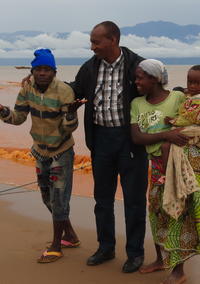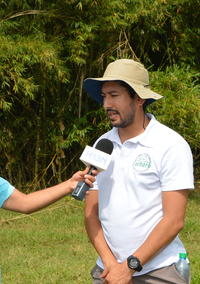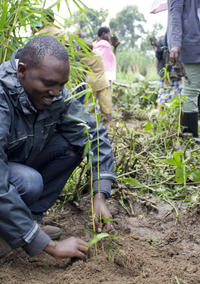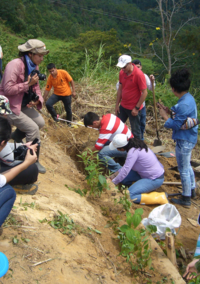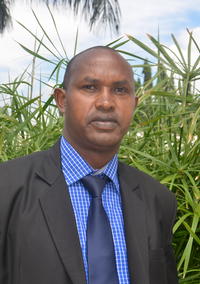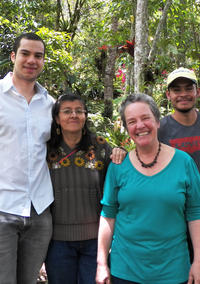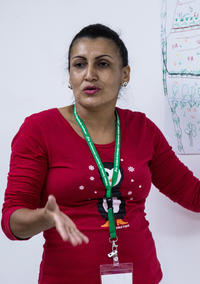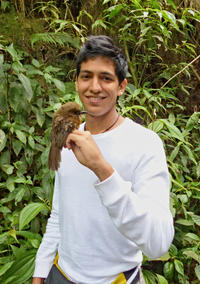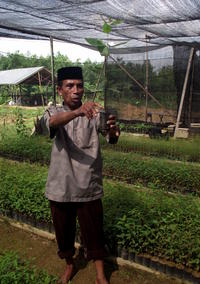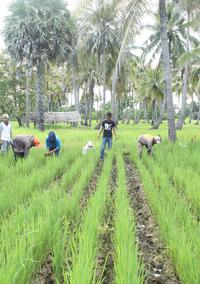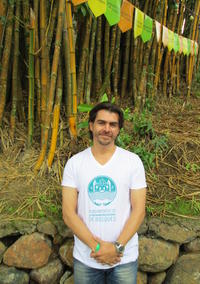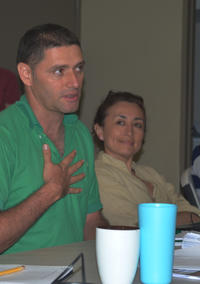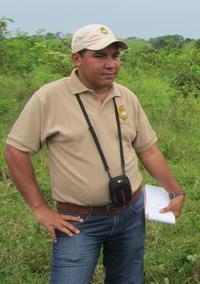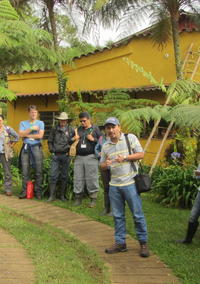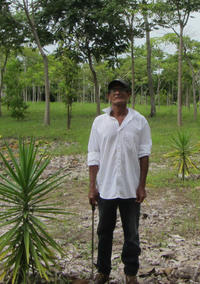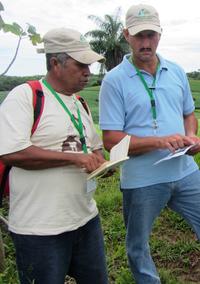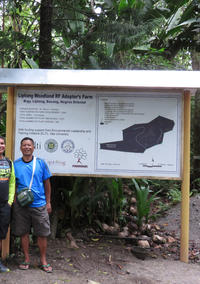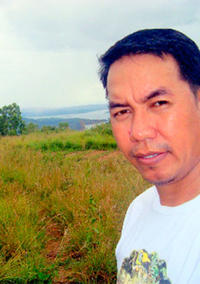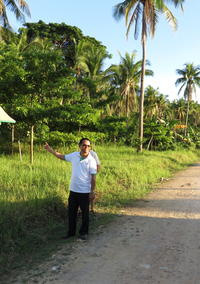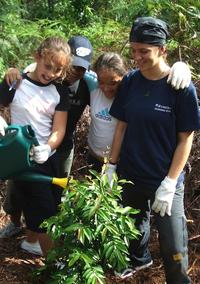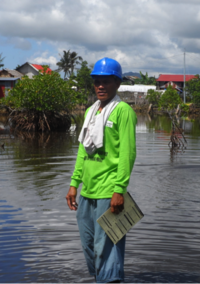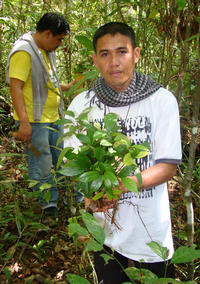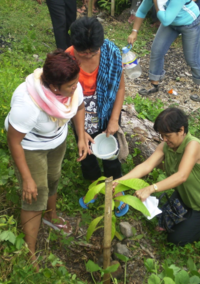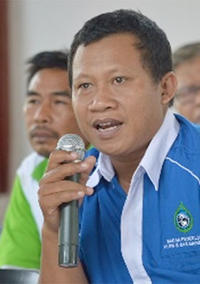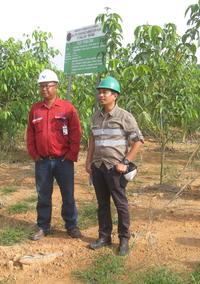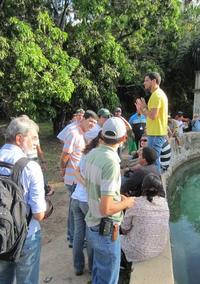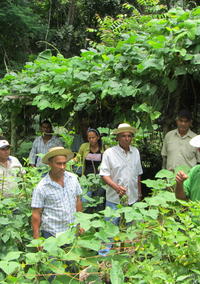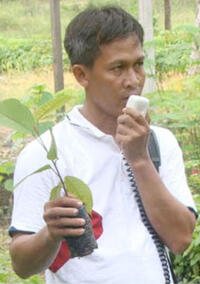You are here
Striving for Farm Resiliency in Panama’s Dry Arc
Centuries of conventional cattle ranching practices that remove trees, overuse of agrochemicals, and fire have led to further degradation and desertification, especially in the heavily deforested Santa María River Watershed, an important source of drinking and irrigation water for three provinces. Farmers in this region face annual water shortages that disrupt farm productivity, which, compounded by unpredictable weather, makes their farms particularly vulnerable to climate change. While many farmers continue to suffer low productivity, some have found alternative practices that enhance their traditional ranching and farming livelihoods.
One of these farmers, ELTI alumnus Rolando Villalobos, decided to transform his family’s cattle ranch in Parita, Herrera Province, by applying agroforestry practices he learned during an ELTI field course on agroforestry in 2019 and through his participation in a project titled “Sustainable Cattle Ranching in the Middle and Lower Watersheds of the Santa María River as a Measure of Adaptation to Climate Change,” funded by the Adaptation Fund. To improve the overall resiliency of the farm, Villalobos began reforesting with native tree species, increasing living fences, planting native fruit and timber species, establishing a forage bank, and creating a system to provide water for drip irrigation and cattle water troughs. As a result, his herd has grown and can remain on his farm year-round; in the past, he ran out of water and forage during the dry season months and would need to rent neighboring pastures.
Additionally, Villalobos diversified the ranch by developing a dragon fruit agroforestry system. Dragon fruit, which is native to the dry region, grows well in the degraded soils. Villalobos grafted new commercial varieties that have both local and international markets and grow well intercropped with other fruit and forage species. The ranch serves as a clear example of how agroforestry can enhance traditional farming and ranching practices.
Villalobos now serves as a co-facilitator for an ELTI field course on ecological restoration in agricultural landscapes. He shares his experience in converting his farm, especially the challenges he faced and how he overcame them, emphasizing lessons learned. His enthusiasm and sense of humor as he explains complex agroforestry techniques are especially effective in building rapport with course participants and making the information accessible.
by Jake Slusser, updated January 21, 2025
During the ELTI training I learned that agroforestry systems require an open mind to experimentation if you want to discover favorable species and the best way to plant and manage them on your farm. So, on my farm I try all kinds of different varieties and ways to plant and even just see what nature plants on its own. Nature is often the best teacher, and I let her show me new ways to manage my agroforestry systems. Now my farm looks and acts like a forest, with many species for production and wildlife, with the resilience to survive the droughts that are so common in this region.
Rolando Villalobos








